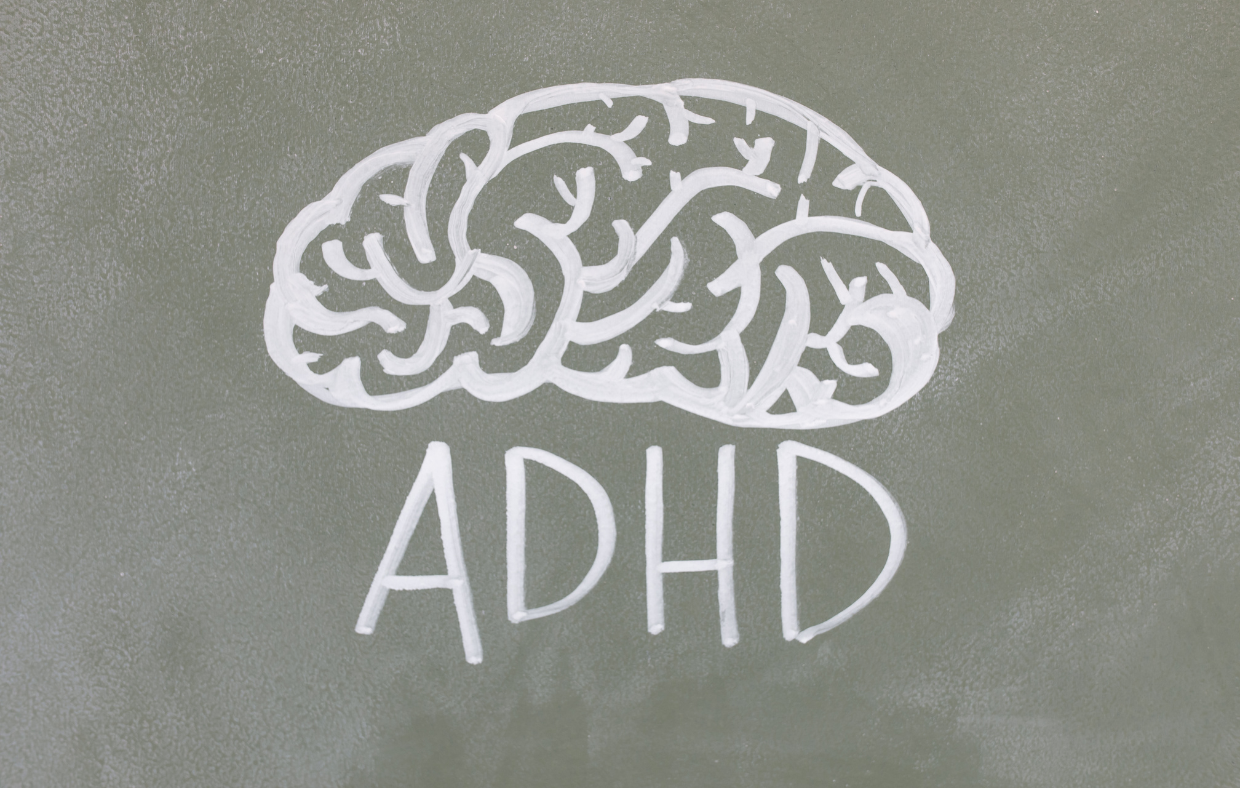With all the stresses of modern life weighing on our shoulders, it’s normal to feel distracted, frustrated, or disorganized from time to time. But for adults with attention-deficit/hyperactivity disorder (ADHD), these feelings can be so frequent and intense that they cause problems with relationships, work performance, and other issues. When symptoms interfere with what’s most important to you, it’s time to seek medical help. It takes commitment, but ADHD is treatable with hard work and therapy.
What is ADHD?
ADHD is a mental health condition that typically begins in childhood, with the average age of onset being about seven years old. Most children, up to 85 percent, do not grow out of it and continue to have symptoms as adults.
Symptoms include trouble focusing or concentrating, speaking without thinking, being disorganized, daydreaming or zoning out, impulsive behavior, anxiety, frequent mood swings, and poor planning. Hyperactivity is also common, but almost exclusively associated with children.
Despite these symptoms, people with ADHD are able to hyperfocus on things that interest them. They often have good hand-eye coordination, making them excellent artists, video gamers, and athletes. But when it comes to keeping up with basic activities and tasks, they struggle. People with ADHD are often late to meetings and events, and have a difficult time staying organized. Their homes may be cluttered because they get distracted while doing chores, moving from one task to another before finishing.
Less than 20 percent of adults who have ADHD are aware they have it, and only a quarter of those who are aware seek treatment.
Distinguishing ADHD from Anxiety or Stress
At some point, everyone feels distracted or disorganized. Who hasn’t had trouble concentrating every now and then? Because ADHD symptoms are common, it can be difficult to know if you have the disorder–or if you’re dealing with something else. To complicate things, more than two-thirds of people with ADHD have at least one other behavioral health condition, such as depression or bipolar disorder.
Unfortunately, there’s no surefire test to diagnose ADHD. And like a lot of conditions, there’s a spectrum. The question “Do I have ADHD?” does not have a yes-or-no answer. However, the timing of your symptoms can offer some clues. ADHD develops during childhood, so any adults who have it will have had symptoms as children. If you’ve just started to feel distracted or impulsive, but rarely felt that way as a child, it’s probably something else.
We usually diagnose adult ADHD based on the intensity of the symptoms and the degree to which they interfere with an individual’s life. If your personal relationships are on ice, you’re struggling to keep up at work, and you can’t seem to get even the simplest of errands done, take a free online assessment (add.org/adhd-test) and go see your doctor.
How is Adult ADHD Treated?
As it is with children, adult ADHD is treated with cognitive behavioral therapy and, if necessary, medication.
Most ADHD medications are stimulants, so we have to be careful prescribing them, especially since some people with ADHD are prone to substance abuse. Occasionally, people who believe they have ADHD come in looking for a quick fix, hoping medication will increase their productivity. This can happen with college students who want to improve their academic performance, for example.
Because stimulants have side effects, can be addictive, and don’t work well for everyone, we always start treatment with cognitive behavioral therapy. This involves working with a therapist to learn useful skills to reshape the way the brain functions, skills like using a daily planner, putting alerts on your phone, and completing one task before starting another. We used to think the brain was resistant to change, but we now know about neuroplasticity and how psychotherapy can change the brain in ways that drastically benefit our mental health.
Another way we help patients manage their ADHD is by encouraging them to find occupations and/or hobbies that allow their strengths to shine. People with ADHD tend to be good with musical instruments, computers, and manufacturing processes, but might not do so well with tasks that require sustained, methodical attention over time. Helping folks understand these things and nudging them toward activities they’re naturally good at can make a big difference.
If you’re reading this and starting to think you might have adult ADHD, don’t panic. It’s treatable if you’re willing to put in some effort. Start by taking an online assessment. Then, make an appointment to see your doctor or therapist so they can provide the treatment you need to feel better.
Stephen Vance, MD, is a psychiatrist at MCHC Health Centers—a local, non-profit, federally qualified health center offering medical, dental, and behavioral health care to people in Lake and Mendocino Counties.

 MyChart Login
MyChart Login

